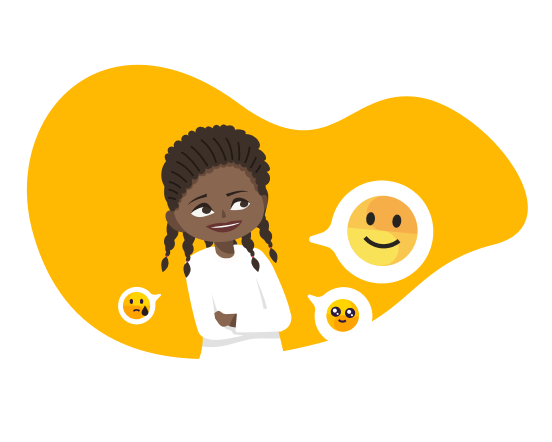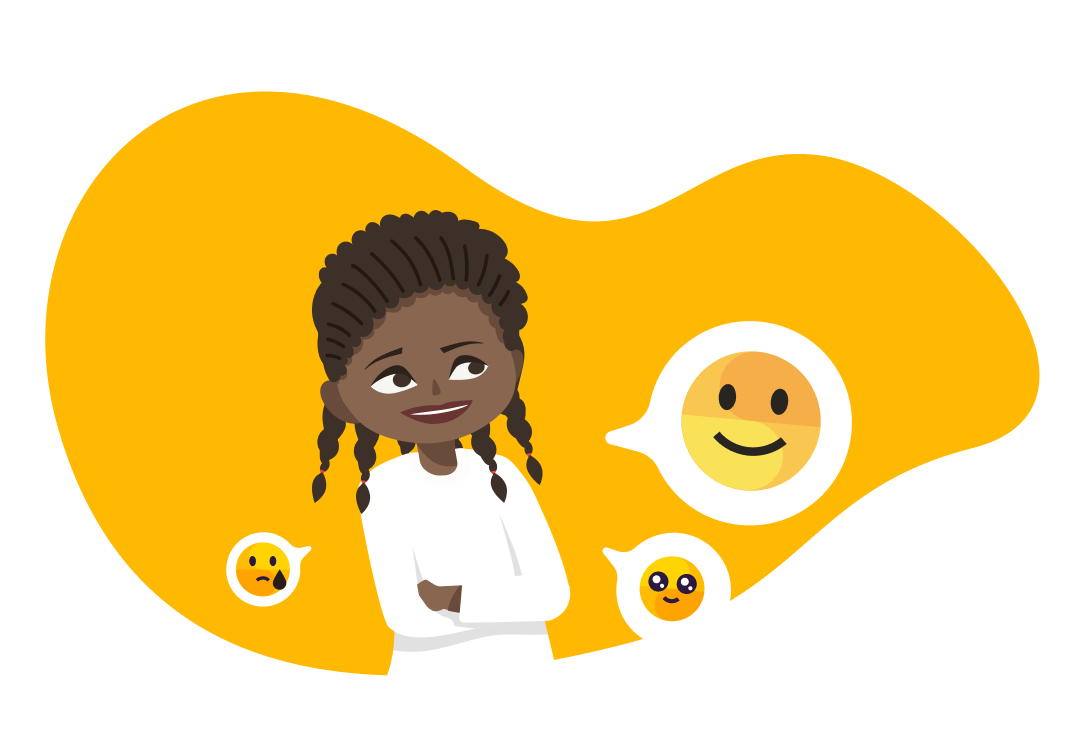
5 main areas of child development
All of us have learned a lot of things since childhood. Though a person develops during his/her whole life, we gain crucial skills, like walking, talking, etc., in childhood. Sure enough, every kid is an individual and grows in his/her own rhythm. However, there is a common pattern of normal development. Most pediatric specialists rely on that and can help a kid when something goes too slow, for example. Child development is a process that parents should pay close attention to, as this is a basis for further learning and normal life, in general.
In other words, child development is a process of gaining significant abilities, both in physical and mental areas. That can be communication with other people, drawing, playing sports, smiling, and forming social relationships. What is really important is developmental milestones — a set of skills which are better to be reached by a certain age. There are conditional time frames for every crucial skill for a kid — for instance, most children start walking between 9 and 15 months. This cannot be reached without other skills such as crawling and sitting. That is how all the milestones work: one new skill leads to another, more difficult and complicated.
There are five main areas (or milestones) of child development:
- cognitive development,
- social and emotional development,
- speech and language development,
- fine motor skill development,
- gross motor skill development.
All of them are equally important, but we’d better take a closer look at each one.
Cognitive development
Cognitive development concerns a child’s memory and ability to learn new information. This developmental area covers such skills as asking questions, finding causal connections, telling the difference between truth and lie, problem-solving, keeping attention. Combining all these skills into bigger groups, we get intellectual development, memory, and reasoning skills. Surely, it is better to try to develop these areas equally, but sometimes children are naturally better in one or two of them and have difficulties with other ones.
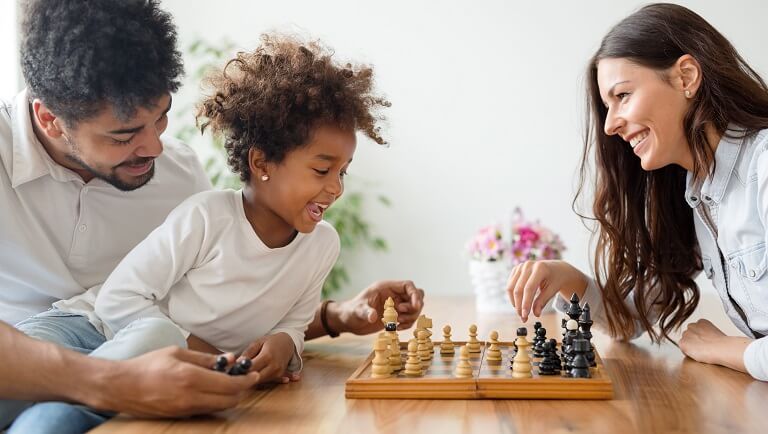
The importance of cognitive skills is obvious — a child learns how to react and interact with the world around him/her. This milestone directly impacts others, so a gap here can lead to problems of a different order. But how is this process going, and in what order a child learns this or that kind of skill? Doctor Jean Piaget found an answer to these questions.
According to his theory, cognitive development starts from the first days of a kid’s life. Though earlier, there was a belief that a child has no cognitive skills until he/she learns to talk. Thus, up to the age of two, children explore the world with their sensory organs: they smell, taste, watch and touch. They learn about shapes and forms and get to know that objects can exist even if we do not see them. By the age of seven, a child should be able to memorize information, use imagination and understand the conceptions of past and future. In primary school, children learn to think logically and understand abstract concepts. After that, a child gains a better understanding of the world, from the scientific point of view, and also is able to solve some problems on his/her own.
As we said before, every child is unique in his/her development, but there are some tips on how to boost a kid’s potential:
- More physical contact. Though it is not an obvious thing, hugging and kissing your child helps him/her to develop cognitive skills — such gestures are also a message that a kid should be able to decode. Moreover, with this kind of attention, a child will feel safe, which is favorably for the development.
- Play games. It is widely known that a child learns a lot through a game. You can play toys with a baby and games on memorization with a grown child to fix new skills and abilities. Make the process of learning a joy, and a process will go faster.
- Be engaged. The more you talk to your child, the more cognitive skills he/she gains. Talk to an infant so that he/she gets used to the sound of your voice; talk to the school kid to develop his/her reasoning skills. A free constant conversation makes the best atmosphere for successful development.
Social and emotional development
These skills continue to develop throughout adulthood, but the basis should be installed from the first days. Socioemotional development includes learning how to regulate emotions, make friends, activate curiosity, and desire to get new experiences and knowledge. Ideally, a child gains this pack of skills before school so that he/she is prepared for a new big community.
It is a highly important part of growing up. Normal development of emotions will prevent your child from some mental problems and help him/her to build a healthy relationship in the future. As you know, adults learn new skills with a bigger effort than children, so if you miss this crucial moment, it will be hard for a kid to catch up to it later. The first smile, anxiety next to the strangers, greetings, and goodbyes — all of that is a part of healthy socioemotional development. Do not be afraid of negative emotions. They are also a part of our life, so children have to learn them, as well. The emotional range of every person is different, but, in any case, it is better than the absence of emotions at all.
Most children are naturally curious and emotional, but you still can help them reach positive results. There are some ways to do it:
- Be a good role model. Children are often the reflection of their parents, so the best thing to do is develop your own emotional statements alongside your child. Learn new information that will be beneficial both for you and your kid.
- Encourage to share. Talk to your child, ask about his/her feelings, show empathy and love — a child needs to feel safe. In the ideal scenario, your kid will tell you about his/her concerns by him/herself, but, firstly, you need to settle an honest and trustful communication.
- Let your child make friends. A kid needs to learn how to communicate with peers. So, allow your child to socialize and build his/her first social relationships. A child needs to learn that not everyone can become his/her friend, that it is a good idea to share toys with others, that you need to talk to people to get what you want, etc.
- Get a pet. This piece of advice is not convenient for everyone. However, still, we should mention that getting a pet would teach your child empathy and responsibility. It is also a great way for a kid to better understand other creature’s emotions.
Speech and language development
Speech and language skills enable a child to explain what he/she wants and how he/she feels. Children of an early age communicate using their gestures and emotions; older ones make sentences. There are several skills a child should take in to succeed in the speech and language development area: learning alphabet and pronunciation of words, writing letters, taking part in conversations (asking and answering questions, creating full complete sentences). If gained in time, all of these skills will help your child in school and adulthood.
Normal speech and language development goes step by step. At the age of two months, a child usually starts cooing, some months later — babbling, trying to produce more sounds, and so forth till the child learns to speak fluently. That is the matter of speech. Language development is about any kind of communication. It can be words and sentences if a child is grown enough, or gestures, facial expressions, and abstract sounds if he/she is an infant. In any case, it is important to support your kid’s progress, for example, by reading to him/her aloud.
There are some other ways to help your child build language skills:
- Name objects. The best way to memorize a new word is to repeat it constantly. All words are new for a child — so try to name them one by one, starting with the most commonly used.
- Use different tones. While singing or reading, a child gets used to the new sounds of a familiar voice. When a child is too small, it is a good idea to speak with him/her exaggeratedly, repeating some words clearly.
- Ask and answer. Even if your child doesn’t talk yet, you’d better react to his/her sounds and gestures. Also, even without a response, ask questions like “Do you want this book or that one?” and observe the reaction.
Fine motor skill development
This developmental area refers to the physical ability to make small movements such as gripping, zipping, cutting, or drawing. To succeed in fine motor development, a child also needs to master other skills like hand-eye coordination and patience. The development process starts very early — when an infant puts his/her hand into the mouth.
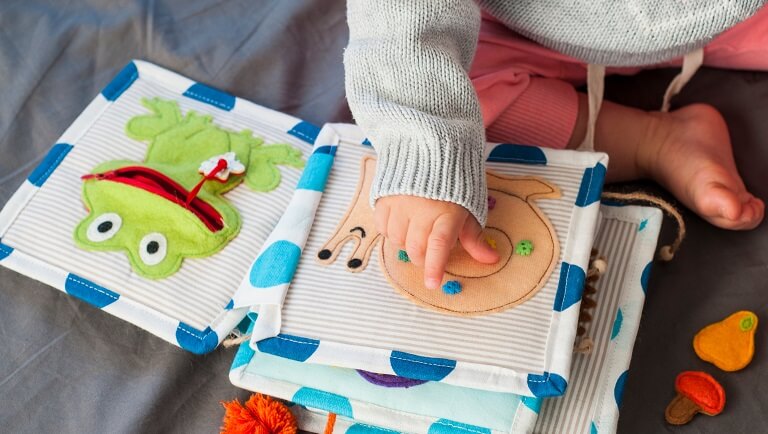
This skill is connected both to school and everyday life. A child with a good development of fine motor skills will most likely have neat and rapid handwriting. Without this set of skills, it is nearly impossible to do some basic things such as using a key, getting dressed, playing musical instruments, or video games. That is why it is crucial to pay attention to how your child picks objects and controls his/her palm muscles.
There are plenty of games and activities that can help your child to develop fine motor skills. We mention just a few of them:
- Various toys. The best way to introduce a child to different shapes and forms is to provide real samples. Toys of various size and function will enable the child to develop the skill through the game, which is usually the most effective way to teach a kid.
- Self-care. Children very often need our caring and help. Still, sometimes, when they have reached a certain age, you can delegate some responsibilities to them. Even if, in this case, the process of dressing-up becomes two times longer, it is a very beneficial practice for a child.
- Doing art. Any kind of artistic activity will be of much use — starting from simple drawing and ending with hand-made sculptures. The best thing is to find an activity your child enjoys most and practice it day by day.
Gross motor skill development
Gross motor skills are responsible for the work of large muscles such as arms, legs, and corps. It goes from the first efforts of a child to raise a head to riding a bicycle. It depends very much on the child’s physical strength, so parents must pay a lot of attention to it.
This development goes on like a chain: to achieve a higher stage, a child needs to master all the previous ones. For example, to stand up for the first time, a child has to strengthen his/her bones and muscles by sitting and crawling. We never take it into consideration, but gross motor skills are basic for our everyday routine. It enables us to do sports, drive vehicles, dress up and do lots of other common things.
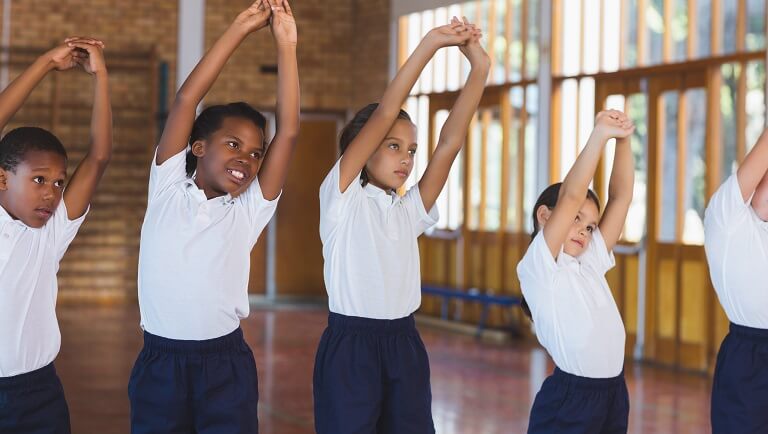
Parents should pay a lot of attention to the development of gross motor skills. There are plenty of exercises and physical activities that can help you to do it:
- Stretching. Early in the morning or before bedtime, offer your kid to stretch arms and legs as much as he/she can. You can also place a child on his/her tummy and ask him/her to reach for the toy, for instance. It will also strengthen neck and back muscles;
- Ball games. Playing with a ball improves body coordination and reaction. A kid can kick, throw and catch a ball to upgrade this skill;
- Dancing. This will not only develop your child’s physical abilities but also raise his/her mood a lot. Try to do repetitive movements like stomping, hand-clapping, and head-shaking;
- Natural exploration. Let your kid climb up the trees, collect rocks, try to catch butterflies — these activities will strengthen his/her body and, also, introduce a kid to the exciting world of nature around us;
- Park play. Sometimes it is quite difficult to find a natural playground in urban cities. Then, the best option is to go to the park with swings, trampolines, and slides. The more a child runs, jumps, and climbs, the faster his/her muscles develop.
What affects the successful development of a child?
Every person, and every child, in particular, is unique in his/her development. Some kids develop faster than others. That is absolutely normal unless it goes beyond a time frame for this or that developmental milestone. In other words, usually, children start talking in the period from 1 to 2 years. If your 1-year-old kid can not talk yet — it is alright. However, if your child is 2,5 years old and has not learned any words — that can be a wake-up call. In this case, do not hesitate to contact your child’s pediatrician for a consultation or treatment.
What is responsible for a correct development? There are two factors: genes and environment. Some things are given to us from birth (such as eyes and hair color, height and sound of the voice), others we get during our life (for example, IQ and behavior). The point is that we are not always able to fulfill the potential behind our genes because of social factors. Family, school, and community are as responsible for the development of children as nature. If we can not change what we were born with, we can boost the development from other sides.
Special toys and educational facilities can help, but it is more important to be a good parent. Show your kid that he/she is needed and loves, that you care about his/her feelings, thoughts, and emotions. Your child will be grateful if you spend your time playing, drawing, or singing with him/her — let him/her feel special for you. Moreover, reading is very important. No matter how old your child is, read to or with him/her as much as you can. It will help kids a lot if you instill in them the love of reading from a very young age. This will start to develop their intellectual and language skills even before they can read books by themselves.
In conclusion
All in all, the best thing you can do to help your child develop healthy and within a norm is to be here for him/her. That does not mean that you have to be concerned about nothing but your kid. You only should guide a child toward beneficial activities, being ready to give him/her a hand in the moment of a crisis. All parents want the best for their children. Still, it is also very important not to put pressure on an immature personality. Remember that you should not project your complexes and unrealized desires to the child. Just let him/her grow in a healthy, caring, and understanding family environment. Be an older friend to your child — that is the golden rule.

new engaging articles


